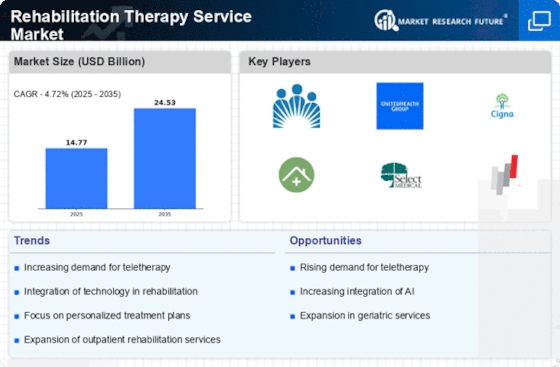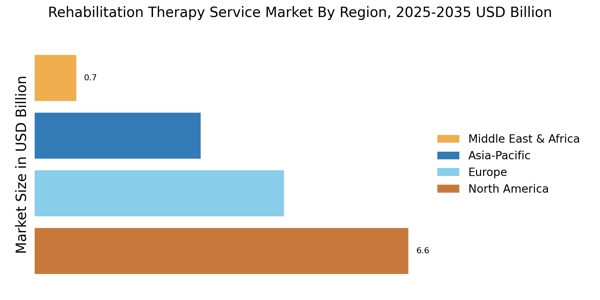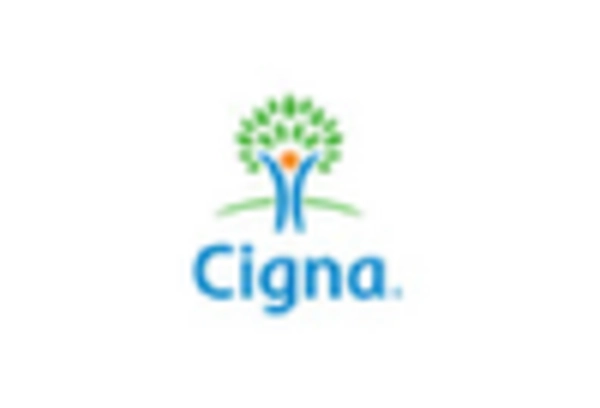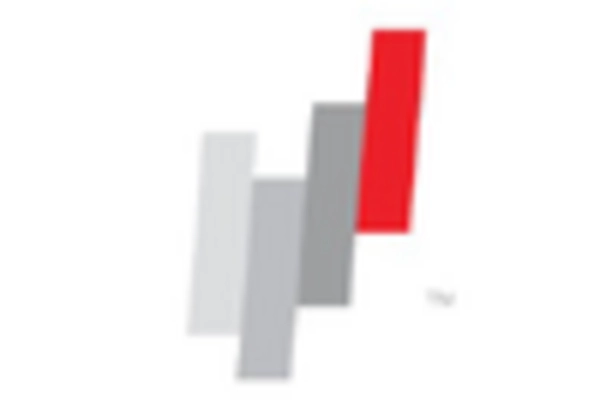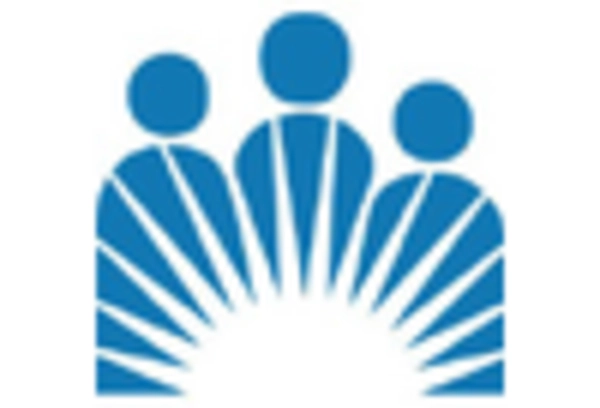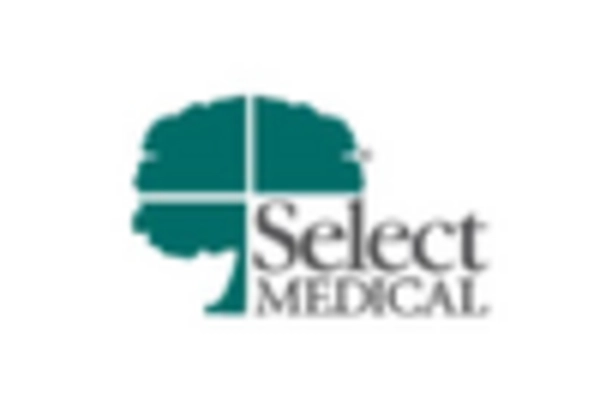Increased Awareness of Mental Health
The Rehabilitation Therapy Service Market is also being shaped by the growing awareness of mental health issues and their impact on overall well-being. There is an increasing recognition that mental health is integral to physical health, leading to a rise in demand for rehabilitation services that address both aspects. Conditions such as depression and anxiety can significantly hinder recovery from physical ailments, necessitating a more holistic approach to rehabilitation. As mental health becomes a focal point in healthcare discussions, rehabilitation services that incorporate psychological support are likely to see increased utilization. This trend suggests that the Rehabilitation Therapy Service Market will expand as providers develop integrated services that cater to the mental and physical needs of patients.
Rising Incidence of Chronic Diseases
The Rehabilitation Therapy Service Market is significantly influenced by the rising incidence of chronic diseases, which has become a pressing public health concern. Conditions such as diabetes, cardiovascular diseases, and respiratory disorders often require ongoing rehabilitation to manage symptoms and improve patients' quality of life. Data indicates that chronic diseases account for a substantial portion of healthcare expenditures, prompting healthcare systems to invest in rehabilitation services. As the prevalence of these conditions continues to escalate, the demand for rehabilitation therapies is expected to grow correspondingly. This trend underscores the importance of rehabilitation services in the overall healthcare continuum, as they play a crucial role in helping patients regain functionality and independence. Thus, the Rehabilitation Therapy Service Market is likely to expand as healthcare providers increasingly recognize the value of rehabilitation in managing chronic health issues.
Aging Population and Increased Demand
The Rehabilitation Therapy Service Market is experiencing a notable surge in demand, primarily driven by the aging population. As individuals age, they often encounter various health challenges, including mobility issues and chronic conditions that necessitate rehabilitation services. According to recent data, the proportion of individuals aged 65 and older is projected to rise significantly, leading to an increased need for rehabilitation therapies. This demographic shift is likely to create a robust market for rehabilitation services, as older adults seek to maintain their independence and quality of life. Furthermore, the growing prevalence of age-related ailments, such as arthritis and stroke, further fuels the demand for specialized rehabilitation therapies. Consequently, the Rehabilitation Therapy Service Market is poised for substantial growth as healthcare providers adapt to meet the needs of this expanding demographic.
Policy Changes and Healthcare Reforms
The Rehabilitation Therapy Service Market is being influenced by ongoing policy changes and healthcare reforms aimed at improving access to rehabilitation services. Governments and health organizations are increasingly recognizing the importance of rehabilitation in enhancing patient outcomes and reducing long-term healthcare costs. Recent reforms have focused on expanding insurance coverage for rehabilitation therapies, making these services more accessible to a broader population. Additionally, initiatives aimed at integrating rehabilitation into primary care settings are likely to enhance service delivery. As these policies take effect, the Rehabilitation Therapy Service Market is expected to grow, driven by increased access and a greater emphasis on preventive care and rehabilitation as essential components of the healthcare system.
Technological Advancements in Rehabilitation
The Rehabilitation Therapy Service Market is witnessing transformative changes due to technological advancements that enhance the delivery of rehabilitation services. Innovations such as telehealth, virtual reality, and wearable devices are revolutionizing how rehabilitation therapies are administered. For instance, telehealth platforms enable patients to access therapy remotely, increasing convenience and accessibility. Additionally, virtual reality applications provide immersive environments for patients to engage in therapeutic exercises, potentially improving outcomes. The integration of these technologies not only streamlines the rehabilitation process but also allows for more personalized treatment plans. As healthcare providers increasingly adopt these technologies, the Rehabilitation Therapy Service Market is expected to experience significant growth, driven by improved patient engagement and satisfaction.


